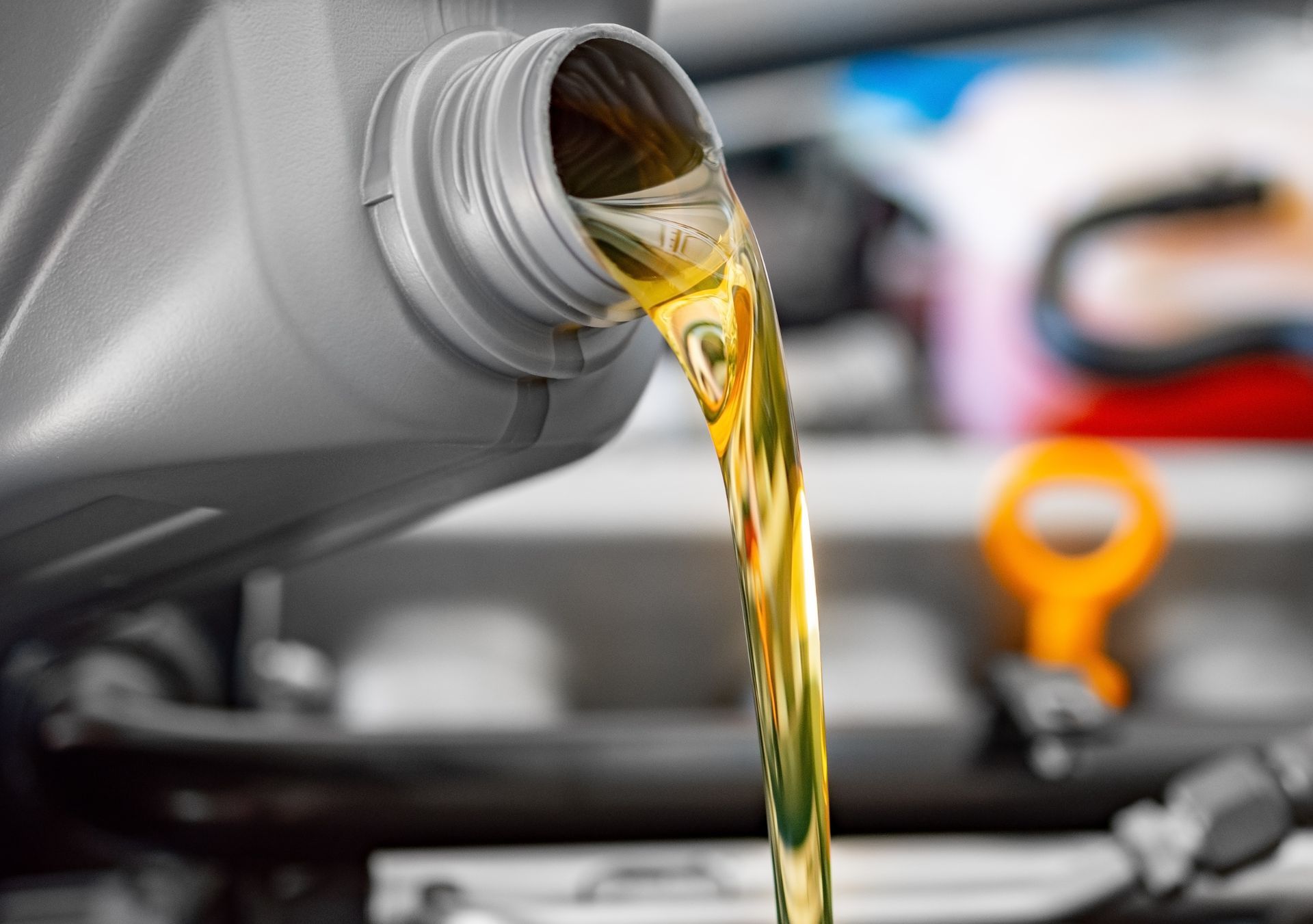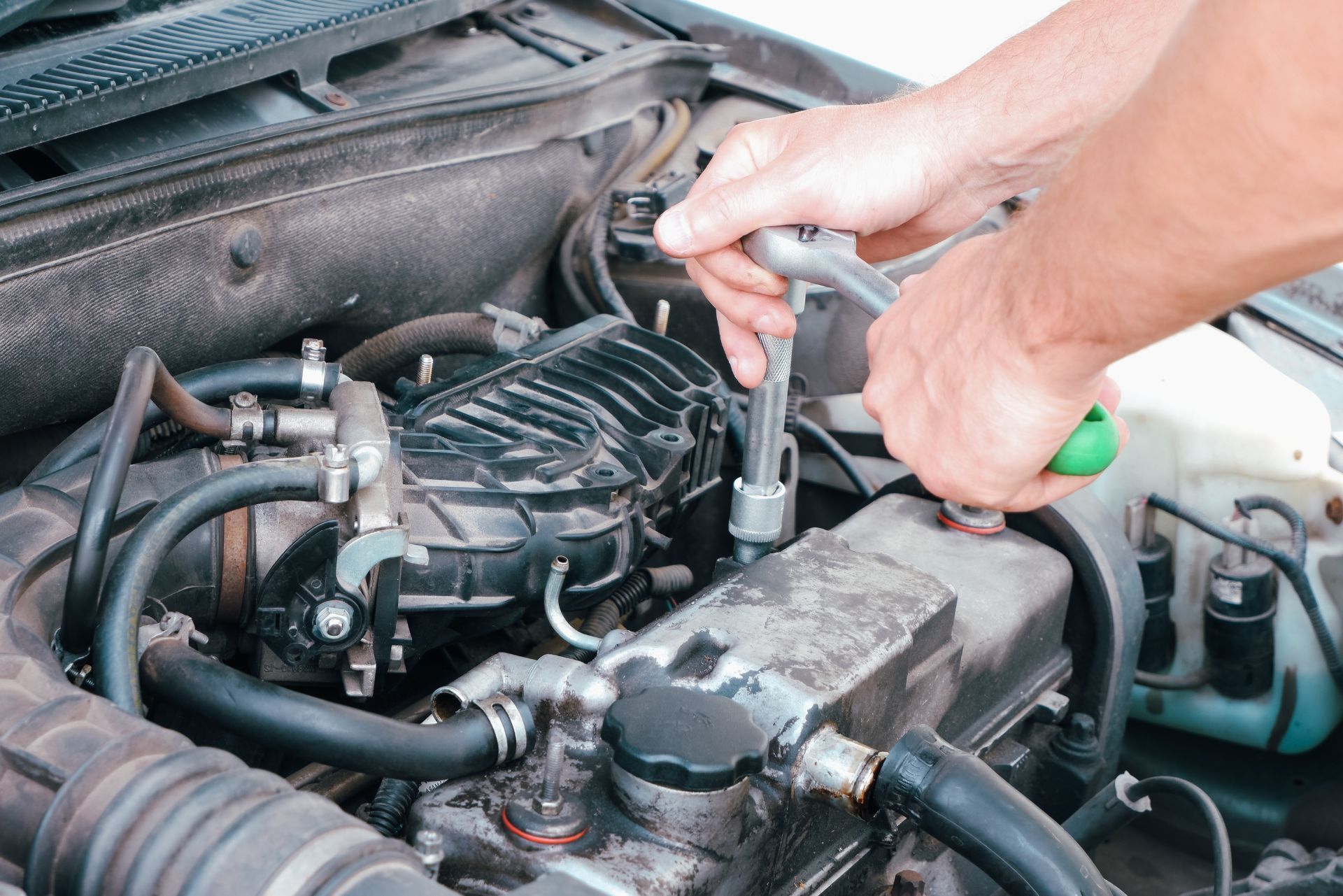
Most Common Business Policies
Index
Contact Us
As a business owner operating a lube shop in Texas, understanding how to protect your investment is crucial. This guide will walk you through the various aspects of lube shop insurance, ensuring that you have the knowledge necessary to make informed decisions for your business.
Understanding the Importance of Lube Shop Insurance
Insurance plays a critical role in safeguarding your lube shop from unexpected events that could lead to significant financial losses. Having the right coverage not only protects your property but also shields you from liability claims that may arise from accidents or property damage.
The Role of Insurance in Your Lube Shop
Your lube shop faces unique challenges that can expose you to risks. Insurance serves to mitigate these risks by providing financial protection against unforeseen circumstances. It allows you to focus on operating your business without constantly worrying about potential liabilities that could derail your operations.
From equipment failures to customer accidents, insurance coverage ensures that you can navigate these issues efficiently. Whether you encounter minor setbacks or major incidents, having the right insurance will provide you with peace of mind. Furthermore, it can also enhance your business reputation; clients are often more inclined to trust a lube shop that demonstrates a commitment to safety and risk management. This trust can lead to increased customer loyalty and potentially higher sales, as clients feel secure knowing that they are dealing with a responsible business.
Key Risks Covered by Lube Shop Insurance
Lube shops deal with a variety of risks. Commonly covered risks include damage to your premises, equipment breakdown, liability from customer injuries, and theft or vandalism. Understanding these risks can aid you in selecting the appropriate insurance policies.
- Property Damage: Covers damage to tools, machinery, and the shop itself due to various factors.
- Liability Claims: Protects you against claims for bodily injury or property damage caused to customers or visitors.
- Workers’ Compensation: For injuries that employees may sustain while on the job.
In addition to these standard coverages, lube shop insurance can also extend to include specialized policies tailored to your specific needs. For instance, pollution liability insurance can be crucial for shops that handle hazardous materials, ensuring that you are protected against claims related to environmental damage. Moreover, business interruption insurance can provide financial support in the event that your operations are halted due to a covered incident, helping you to cover ongoing expenses while you recover. By understanding and investing in these additional coverages, you can create a robust safety net for your business, ensuring that you are prepared for whatever challenges may arise.

Types of Lube Shop Insurance in Texas
Having a comprehensive insurance policy doesn't mean you have to rely on a single type of coverage. There are several insurance options tailored for lube shops in Texas, each serving different purposes.
Property Insurance for Lube Shops
Property insurance is designed to cover physical assets, including your tools, equipment, and the facility itself. This type of insurance is essential for protecting your business from losses due to fires, floods, or natural disasters.
When considering property insurance, assessing the value of your physical assets is crucial. This way, you can ensure that you have adequate coverage in place that reflects the true worth of your equipment and infrastructure. Additionally, it’s wise to regularly update your policy as you acquire new tools or make improvements to your shop. This proactive approach can prevent potential gaps in coverage that might leave you vulnerable in the event of a disaster.
Liability Insurance for Lube Shops
Liability insurance guards against claims of negligence that may arise from your business operations. In a lube shop setting, this can include customer injuries, property damage, and other legal claims that may stem from your services.
It's vital to choose a liability insurance policy that offers comprehensive coverage. Evaluate the limits of liability as well as additional endorsements that can protect your business under specific circumstances. For instance, some policies may include coverage for product liability, which is particularly important if you sell any automotive products or fluids. Understanding the nuances of your policy can help you navigate potential claims more effectively and ensure that your business remains protected from unforeseen legal challenges.
Workers' Compensation Insurance
Workers' compensation insurance is crucial for safeguarding not only your employees but also your business from potential lawsuits. In case a worker gets injured on the job, this insurance helps cover medical expenses and provides financial assistance during recovery.
In Texas, having workers' compensation insurance is not mandatory, but it is highly recommended. It reflects a commitment to employee safety and can create a positive work environment. Moreover, offering this coverage can enhance your shop's reputation, making it more attractive to potential employees who prioritize workplace safety. Additionally, some clients may prefer to work with businesses that demonstrate a commitment to their workers' welfare, potentially leading to increased customer loyalty and trust.
Factors Influencing the Cost of Lube Shop Insurance
The cost of lube shop insurance can vary significantly based on different factors. Understanding these factors could help you find more affordable options that still provide adequate coverage.
Location and Size of Your Lube Shop
The geographical location of your shop can significantly influence insurance premiums. Areas prone to natural disasters or high crime rates may result in higher costs. Moreover, the size of your business, including both physical space and equipment, will impact the overall insurance price. A larger facility may require more extensive coverage, especially if it houses specialized machinery or a significant inventory of automotive products. Additionally, shops located in urban areas might face different risks compared to those in rural settings, such as increased foot traffic and the potential for accidents.
Number of Employees
As your workforce increases, so does the risk of incidents that could lead to claims. Consequently, insurance costs may rise depending on the number of employees you have. Consider staff training and safety practices to mitigate potential risks. Implementing regular safety drills and providing comprehensive training on equipment usage can not only enhance workplace safety but may also qualify your business for discounts on insurance premiums. Furthermore, maintaining a positive workplace culture can lead to lower turnover rates, which contributes to a more stable and experienced workforce, ultimately reducing the likelihood of accidents.
Previous Insurance Claims
Your history of insurance claims will also play a role in the calculation of premiums. If you have a pattern of frequent claims, insurance providers may view you as a high-risk customer, resulting in an increased rate. Conversely, a clean claims history can lead to cost savings. It’s crucial to maintain thorough documentation of all incidents and the steps taken to address them. This not only helps in managing future claims but also demonstrates to insurers that you are proactive in risk management. Additionally, consider investing in loss prevention strategies, such as security systems or regular maintenance checks, which can further enhance your profile in the eyes of insurance providers.

How to Choose the Right Insurance Provider
Selecting the right insurance provider is as important as choosing the right coverage. A reliable insurer will offer quality service, stability, and help when you need it the most. The right provider can make a significant difference in your overall experience, especially during challenging times when you need to rely on your coverage the most.
Evaluating the Reputation of Insurance Providers
Researching the reputation of insurance companies is vital before making a decision. Check customer reviews, ratings, and any complaints filed against them. Understanding their claims handling process can also provide insight into what to expect from them. Additionally, consider seeking recommendations from friends, family, or business associates who have had firsthand experience with specific insurers. Their insights can often reveal nuances that online reviews may not cover, such as customer service responsiveness and overall satisfaction.
Comparing Insurance Quotes
Obtaining multiple quotes from different providers allows you to gauge the market rate for insurance coverage tailored to lube shops. Compare the coverage options side by side, taking note of what is included and excluded in each policy. It's also wise to inquire about any discounts that may apply, such as bundling policies or loyalty discounts for long-term customers. Understanding the nuances in pricing can help you make a more informed decision and potentially save money while ensuring adequate coverage.
Understanding the Terms and Conditions
Before signing any policy, read the terms and conditions thoroughly. Pay attention to exclusions, limitations, and the claims process. Clear comprehension will save you from surprises when you need to file a claim. It’s also beneficial to ask questions about any jargon or complex clauses that may be unclear. Engaging with an insurance agent can provide clarity on how specific terms may impact your coverage, allowing you to make a decision that aligns with your business's unique needs and risks. Furthermore, consider reviewing the policy periodically, especially as your business evolves, to ensure that your coverage remains adequate and relevant.
Tips for Reducing Insurance Costs
While the need for insurance is non-negotiable, there are strategies to keep costs manageable. Implementing these tips could lead to significant savings.
Implementing Safety Measures
By taking proactive steps to enhance safety in your lube shop, you can reduce the likelihood of accidents or injuries, which in turn lowers insurance costs. Consider conducting regular safety drills and maintaining proper signage and equipment. Additionally, investing in safety gear such as non-slip mats and personal protective equipment (PPE) for your employees can further mitigate risks. Creating a culture of safety where employees feel empowered to report hazards can also lead to a more secure working environment, ultimately reflecting positively on your insurance premiums.
Regular Maintenance and Inspections
Routine inspections and maintenance of your equipment can prevent breakdowns and associated claims. An investment in upkeep can translate into lower insurance costs and lasting equipment life. Establishing a maintenance schedule not only helps in identifying potential issues before they escalate but also demonstrates to your insurer that you are committed to risk management. Furthermore, keeping detailed records of maintenance activities can be beneficial during insurance renewals, as it showcases your proactive approach to minimizing risks.
Employee Training and Certifications
Providing your employees with training programs and certifications can lead to improved safety protocols in your shop. Well-trained employees are less likely to make mistakes, thereby lowering risk and insurance costs over time. Consider offering specialized training sessions that focus on emergency response, equipment handling, and customer service. This not only enhances the skill set of your workforce but also fosters a sense of professionalism and accountability. Additionally, encouraging employees to pursue industry-recognized certifications can enhance your shop's reputation and may even qualify you for additional discounts on your insurance premiums.
When faced with a situation that requires filing a claim, understanding the process is crucial. A well-prepared claim can ensure that you receive timely compensation. Knowing the ins and outs of the claims process can significantly reduce stress during an already challenging time, allowing you to focus on recovery and rebuilding.
When and How to File a Claim
Filing a claim should be done as soon as an incident occurs. Most insurance policies have strict timelines for reporting claims. Gather evidence, documentation, and any witness statements to support your claim. It's also beneficial to familiarize yourself with your specific policy details, as different insurers may have varying requirements and procedures. Taking the time to document the incident thoroughly, including photographs and detailed descriptions, can strengthen your case and help prevent delays in processing your claim.
Understanding the Investigation Process
Once you file a claim, the insurance provider will conduct an investigation to assess the validity of your claim. Cooperation and prompt communication during this process can expedite the resolution of your claim. Be prepared for the possibility of an adjuster visiting your location to gather more information. This is an opportunity to present your case clearly, so having all your documentation organized and accessible can make a significant difference. Understanding that the investigation may take time can help manage your expectations and reduce frustration.
Receiving and Using Your Insurance Payout
Once your claim is approved, it's vital to understand how to effectively use your insurance payout. Use the funds wisely to cover repairs, replace damaged equipment, or subsidize business income during downtime. Additionally, consider consulting with a financial advisor or an insurance expert to maximize the benefits of your payout. They can provide guidance on how to allocate funds for both immediate needs and long-term recovery strategies, ensuring that you are not only addressing current issues but also setting your business up for future success.
Moreover, it's essential to keep detailed records of all expenses related to the claim, as this can be invaluable for future reference or if you need to file additional claims. Understanding the nuances of your policy can also help you identify any additional coverage that may be beneficial, such as business interruption insurance, which can provide extra financial support during challenging times. By being proactive and informed, you can navigate the complexities of the claims process with greater ease, allowing your lube shop to bounce back stronger than ever.


